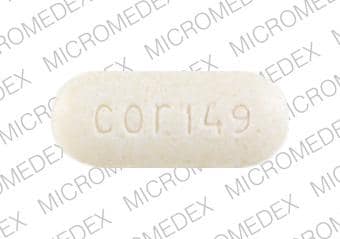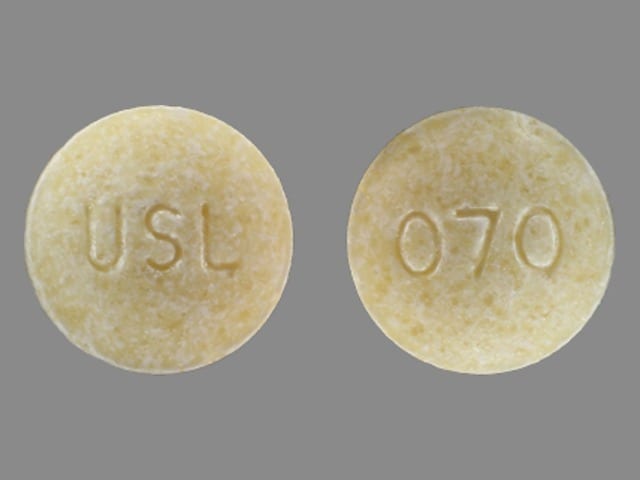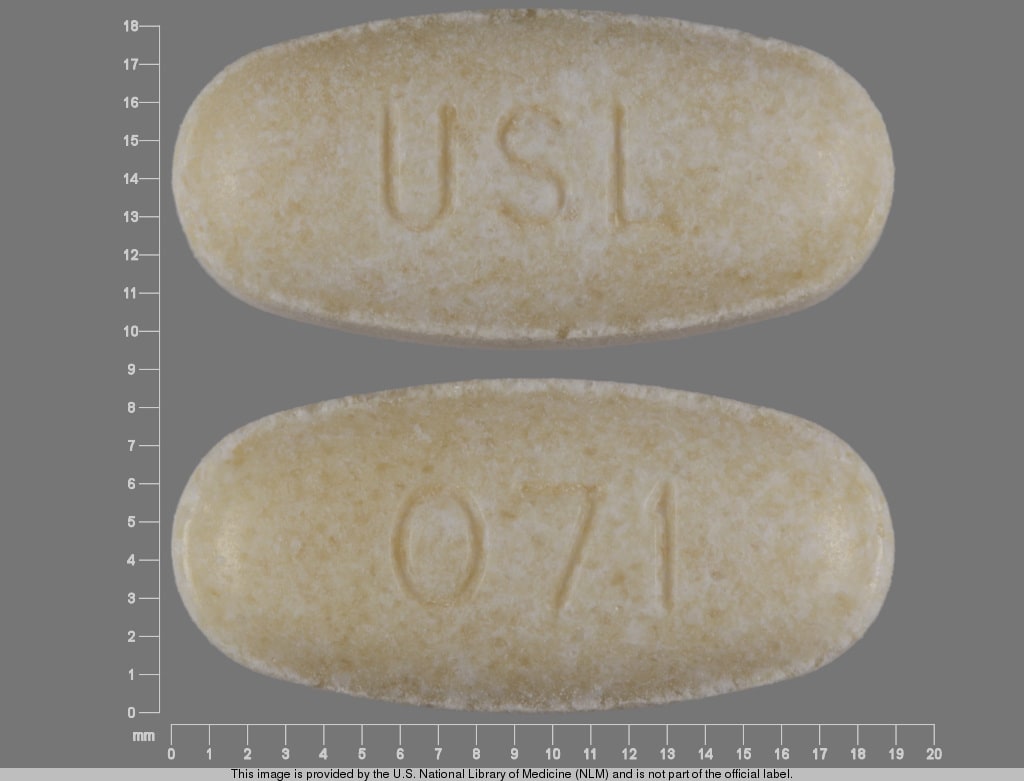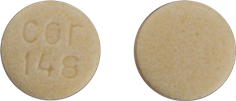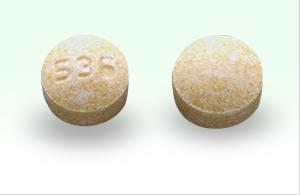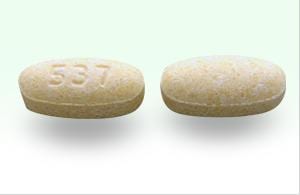Dosage Forms
Excipient information presented when available (limited, particularly for generics); consult specific product labeling.
Tablet Extended Release, Oral:
Urocit-K 5: 5 mEq (540 mg)
Urocit-K 10: 10 mEq (1080 mg)
Urocit-K 15: 15 mEq (1620 mg)
Generic: 5 mEq (540 mg), 10 mEq (1080 mg), 15 mEq (1620 mg)
Pharmacokinetics/Pharmacodynamics
Metabolism
Hepatic to bicarbonate
Use: Labeled Indications
Kidney stones: For the management of renal tubular acidosis with calcium stones, hypocitraturic calcium oxalate nephrolithiasis of any etiology, and uric acid lithiasis with or without calcium stones.
Contraindications
Renal insufficiency (GFR <0.7 mL/kg/minute); patients with hyperkalemia or with conditions predisposing to hyperkalemia (eg, chronic renal failure, acute dehydration, adrenal insufficiency, uncontrolled diabetes mellitus, tissue breakdown, strenuous physical exercise in unconditioned individuals); patients with delayed gastric emptying, esophageal compression, or intestinal obstruction or stricture; patients with active urinary tract infection; peptic ulcer disease
Dosage and Administration
Dosing: Adult
Alkalinizer, bicarbonate precursor: Oral:
Mild to moderate hypocitraturia (>150 mg/day urinary citrate): Initial: 15 mEq 2 times daily or 10 mEq 3 times daily; maximum dose: 100 mEq/day
Severe hypocitraturia (<150 mg/day urinary citrate): Initial: 30 mEq 2 times daily or 20 mEq 3 times daily; maximum dose: 100 mEq/day
Dosing: Geriatric
Refer to adult dosing.
Administration
Administer with meals or bedtime snack (or within 30 minutes after). Swallow tablets whole with a full glass of water.
Dietary Considerations
Ensure adequate fluid intake; limit salt intake. Take with meals or snack.
Storage
Store at controlled room temperature.
Potassium Citrate Images
Drug Interactions
Aliskiren: Potassium Salts may enhance the hyperkalemic effect of Aliskiren. Monitor therapy
Alpha-/Beta-Agonists (Indirect-Acting): Alkalinizing Agents may increase the serum concentration of Alpha-/Beta-Agonists (Indirect-Acting). Monitor therapy
Aluminum Hydroxide: Citric Acid Derivatives may increase the absorption of Aluminum Hydroxide. Monitor therapy
Amantadine: Alkalinizing Agents may increase the serum concentration of Amantadine. Monitor therapy
Amphetamines: Alkalinizing Agents may decrease the excretion of Amphetamines. Management: Consider alternatives to using amphetamines and alkalinizing agents in combination. If these agents must be used together, patients should be monitored closely for excessive amphetamine effects. Consider therapy modification
Angiotensin II Receptor Blockers: Potassium Salts may enhance the hyperkalemic effect of Angiotensin II Receptor Blockers. Monitor therapy
Angiotensin-Converting Enzyme Inhibitors: Potassium Salts may enhance the hyperkalemic effect of Angiotensin-Converting Enzyme Inhibitors. Monitor therapy
Anticholinergic Agents: May enhance the ulcerogenic effect of Potassium Citrate. Avoid combination
Drospirenone: Potassium Salts may enhance the hyperkalemic effect of Drospirenone. Monitor therapy
Eplerenone: May enhance the hyperkalemic effect of Potassium Salts. Management: This combination is contraindicated in patients receiving eplerenone for treatment of hypertension. Consider therapy modification
Heparin: May enhance the hyperkalemic effect of Potassium Salts. Monitor therapy
Heparins (Low Molecular Weight): May enhance the hyperkalemic effect of Potassium Salts. Monitor therapy
Mecamylamine: Alkalinizing Agents may increase the serum concentration of Mecamylamine. Monitor therapy
Memantine: Alkalinizing Agents may increase the serum concentration of Memantine. Monitor therapy
Nicorandil: May enhance the hyperkalemic effect of Potassium Salts. Monitor therapy
Potassium-Sparing Diuretics: Potassium Salts may enhance the hyperkalemic effect of Potassium-Sparing Diuretics. Consider therapy modification
QuiNINE: Alkalinizing Agents may increase the serum concentration of QuiNINE. Monitor therapy
Adverse Reactions
Frequency not defined.
Endocrine & metabolic: Hyperkalemia
Gastrointestinal: Abdominal distress, diarrhea, nausea, vomiting
Warnings/Precautions
Concerns related to adverse effects:
- GI effects: May cause GI upset (eg, nausea, vomiting, diarrhea, abdominal pain, discomfort) and lead to GI ulceration, bleeding, perforation and/or obstruction.
- Hyperkalemia: Close monitoring of serum potassium concentrations is needed to avoid hyperkalemia; severe hyperkalemia may lead to muscle weakness/paralysis and cardiac conduction abnormalities (eg, heart block, ventricular arrhythmias, asystole).
Disease-related concerns:
- Acid/base disorders: Use with caution in patients with acid/base alterations; changes in serum potassium concentrations can occur during acid/base correction, monitor closely.
- Cardiovascular disease: Use with caution in patients with cardiovascular disease (eg, heart failure, cardiac arrhythmias); patients may be more susceptible to life-threatening cardiac effects associated with hyper/hypokalemia.
- Hepatic impairment: Citrate is converted to bicarbonate in the liver; this conversion may be blocked in patients in hepatic failure.
- Potassium-altering conditions/disorders: Use with caution in patients with disorders or conditions likely to contribute to altered serum potassium and hyperkalemia (eg, untreated Addison's disease, heat cramps, severe tissue breakdown from trauma or burns).
- Renal impairment: Use with caution in patients with renal impairment; monitor serum potassium concentrations closely. Contraindicated with severe impairment.
- Severely ill: Citrate is converted to bicarbonate in the liver; this conversion may be blocked in patients who are severely ill or in shock.
Concurrent drug therapy issues:
- Digitalis: Use with caution in digitalized patients; may be more susceptible to potentially life-threatening cardiac effects with rapid changes in serum potassium concentrations.
- Drug-drug interactions: Potentially significant interactions may exist, requiring dose or frequency adjustment, additional monitoring, and/or selection of alternative therapy. Consult drug interactions database for more detailed information.
Monitoring Parameters
Serum electrolytes (potassium, chloride, sodium), bicarbonate, serum creatinine, and CBC every 4 months (more frequently with cardiac/renal disease or acidosis); urinary citrate and/or urinary pH at initiation or dose change and every 4 months; ECG (periodically)
Pregnancy
Pregnancy Risk Factor
C
Pregnancy Considerations
Animal reproduction studies have not been conducted.
Patient Education
What is this drug used for?
- It is used to treat kidney stones.
- It is used to treat acid problems in the blood.
Frequently reported side effects of this drug
- Diarrhea or tablet shell in stool
Other side effects of this drug: Talk with your doctor right away if you have any of these signs of:
- High potassium like abnormal heartbeat, confusion, dizziness, passing out, weakness, shortness of breath, numbness or tingling feeling.
- Abdominal swelling
- Severe nausea
- Severe vomiting
- Severe abdominal pain
- Black, tarry, or bloody stools
- Vomiting blood
- Signs of a significant reaction like wheezing; chest tightness; fever; itching; bad cough; blue skin color; seizures; or swelling of face, lips, tongue, or throat.
Note: This is not a comprehensive list of all side effects. Talk to your doctor if you have questions.
Consumer Information Use and Disclaimer: This information should not be used to decide whether or not to take this medicine or any other medicine. Only the healthcare provider has the knowledge and training to decide which medicines are right for a specific patient. This information does not endorse any medicine as safe, effective, or approved for treating any patient or health condition. This is only a brief summary of general information about this medicine. It does NOT include all information about the possible uses, directions, warnings, precautions, interactions, adverse effects, or risks that may apply to this medicine. This information is not specific medical advice and does not replace information you receive from the healthcare provider. You must talk with the healthcare provider for complete information about the risks and benefits of using this medicine.
